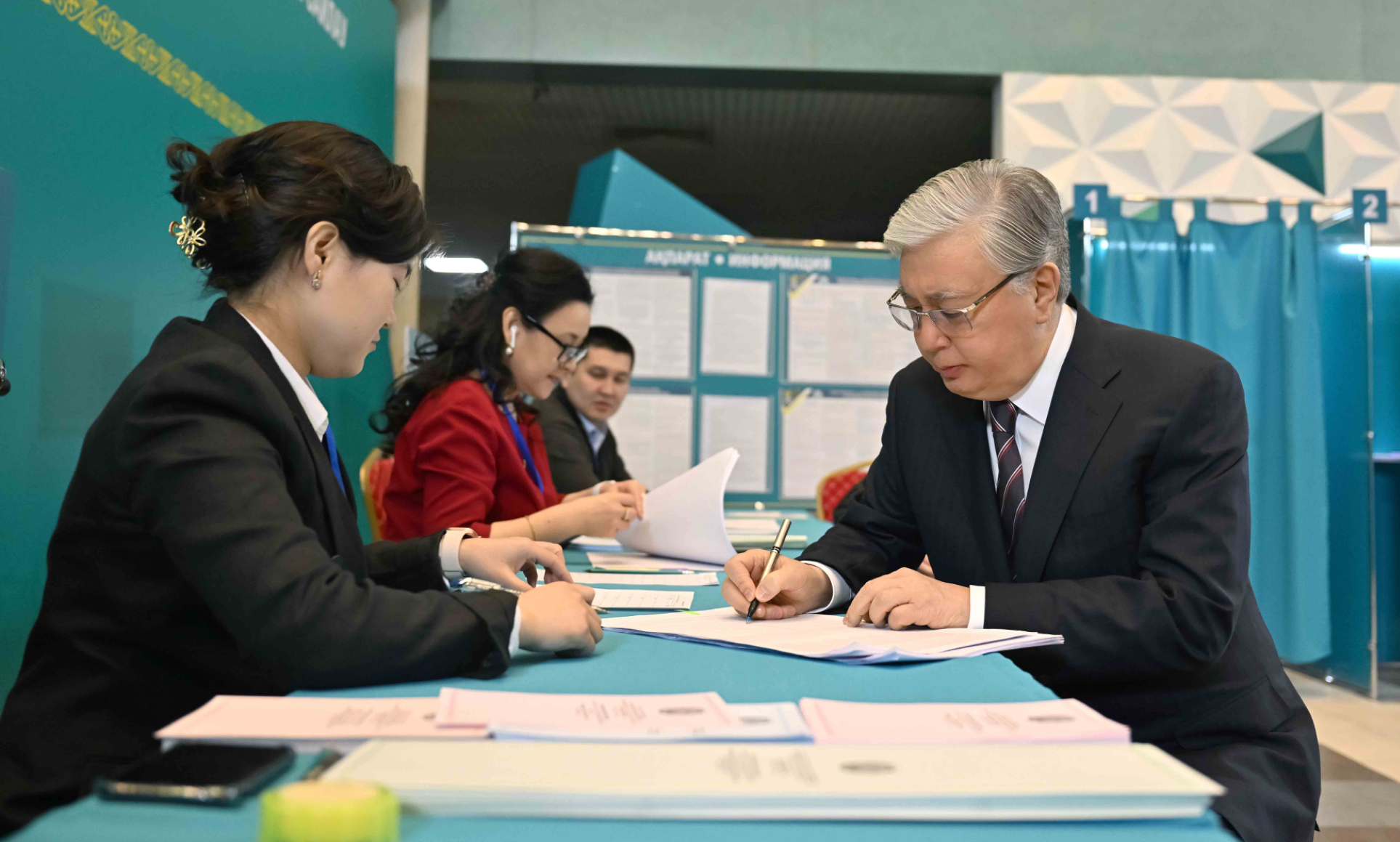A landslide win by the Amanat party has been confirmed by Kazakhstan’s Central Electoral Commission. Five other parties will also be represented in the country’s lower house of parliament, the Mazhilis, writes Political Editor Nick Powell.
It was a result that vindicates not just the exit polls but President Kassym-Jomart Tokayev’s decision to propose greater powers for the new parliament (endorsed in a referendum) and then call early elections. The victor, with 54% of the vote, is the Amanat (Commitment) Party that he used to lead, though the new constitution places the President above party politics.
Second place, with 11%, has been taken by the social democratic Auyl People’s Democratic Party, suggesting that political debate in the new parliament will be more about the pace of reform, rather than its direction. The newly formed Respublica Party, which is strongly in favour of economic and social reform, came third with nearly 9% of the vote.
The Aq jol Democratic Party, the People’s Party and the National Social Democratic Party all also cleared the 5% threshold for achieving representation in the Mazhilis. The green party, Baytaq, failed to make it over the line with just over 2% support. Despite the liberalisation of the rules on political campaigning and party formation, voter turnout was just over 54%, falling to 26% in the largest city, Almaty.
Responding to the results, the spokesperson for the European Union’s external action service stated the EU’s full support for the implementation of ongoing changes in Kazakhstan. The EU stressed the importance of further political and socio-economic reforms, adding that building resilient democratic institutions and a strong civil society are key steps to a more inclusive and democratic Kazakhstan.
There were 793 observers from 12 international organisations and 41 countries. “The increased competition, particularly with self-nominated candidates, is a significant development”, stated observers from the OSCE Parliamentary Assembly.
Portuguese MP Pedro Roque Oliveira said “Kazakhstan, a country that upholds the defining features of a democracy, such as the rule of law, strong opposition and representative government, might serve as an example for the region”. The election was the final public vote in the political renewal cycle, which began with a referendum and a presidential election last year and then a Senate election earlier this year.


















































